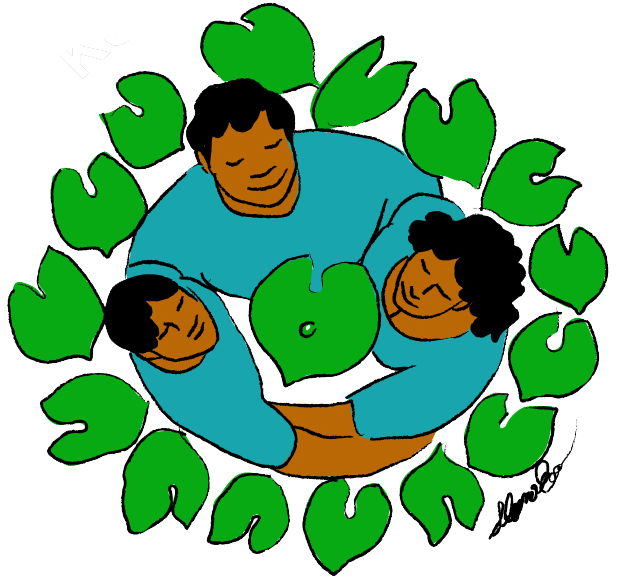Melissa Mamea left with Medical Assistant Cherrylyn Ramos.
“COVID’s big lesson for us is to stay flexible and quick on our feet, as things keep changing,” she says.
Success for Melissa is “not just how many shots we give, but how we care for our relationships and keep these growing,” she says. “People love KKV, so community volunteers supporting our program have been willing to answer the call when we put it out there.” This includes National Guard members, firefighters, and other volunteers.
Vaccine Clinic:
Vaccine Hotline: 808-791-9489
Location: 2229 N School St, Hon HI 96819 (Wellness Center)
Hours: Monday-Saturday 9:00am-12:00pm, 1:00pm-4:00pm
KKV’s Young and Fearless Immunization Coordinator
Vaccine Clinic Coordinator Melissa Mamea was hired by KKV this year to help launch the expansion of our COVID-19 immunization effort. According to KKV Assistant Medical Director Dr. Nathan Tan, “Melissa is the one who holds everything together and makes it all work.” She coordinates staff, partners and volunteers and sees to the clinic’s staffing, facility, vaccines, and other supply needs, and also steps in when needed to screen and talk story with patients to ease their anxiety.
At 27, Melissa exudes a humble confidence and chill vibe, with a rippling laugh and caring warmth that set others at ease. Growing up in Kalihi, her parents were KKV patients, so she understands what it feels like to be a patient. “I was a KKV baby,” she says. “So coming to work here was like coming home.”
Melissa had just earned her master’s degree in social work when she joined KKV last October as a Hui Hoaka temporary hire known as an “advocate.” With the Hui Hoaka community support team working from Ho’oulu ‘Aina, she helped KKV jumpstart a new cross-program economic assistance initiative to provide rental and utility support in 2020 and continuing today. She was redeployed to support KKV’s COVID-19 immunization program.
Though more people are choosing to get vaccinated these days, Melissa understands that “it’s still a tricky thing, it’s still scary for them,” she says. “Sometimes when they’re waiting out here, you can just tell they’re anxious by the way they’re sitting or if they’re really quiet. We kinda just talk to them, try to alleviate their fears.”
When they leave, patients are given a bag with a slip of post-shot instructions, a face mask and a sticker. The sticker is a must-have hot item, she laughs. “Some people look forward to getting the sticker to display, and if we forget it, they go, ‘Hey, where’s my sticker!’ ‘Oh I’m sorry, here it is.’ Then when they get it, they are so happy,” as they quietly read the big, red, round sticker with these words: “I got the shot. For me. For my community.”





